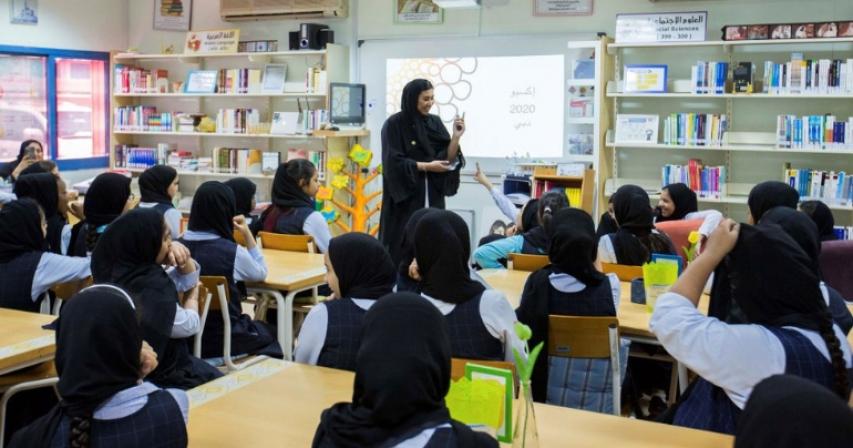How UAE Schools should Prepare Students for Jobs of the Future?

Considering the ever-changing nature of employment around the world, the UAE's youth should be able to explore career choices not after graduation — but right inside their classrooms while they are still students, a top official said at a forum on Thursday.
Both educators and policymakers need to help students in identifying career aspirations from an early stage, said Faisal Al Hammadi, advisor to the Minister of Education, who spoke during a conference held at GEMS Modern Academy in Dubai
"Industry experience (among other things) should be integrated to the classroom learning — additionally, tweaking and adapting the curriculum to allow room for ‘work’. Policymakers should come up with programmes that allow students across the country to really understand what is available in the market. So, what are the career choices of today and what are the career choices of future?” he said.
Al Hammadi also stressed that by equipping students with the knowledge and mindset required for entrepreneurship, educators can empower them to create their own opportunities and navigate the ever-changing world of work.
From space to artificial intelligence (AI), more promising sectors and golden opportunities have been cropping up in recent years.
"We all know when Hazzaa AlMansoori went to the International Space Station in 2019, then space became a big thing. Space is a field that everyone is aware of now in the UAE. So, what are the other trends for the future? We talk about data a lot, for example. How can AI be used? I would say career guidance and (more) information should be available that’ll help students understand where things are going,” the official said.
He added that by incorporating entrepreneurship education and technology integration into various subjects, students will understand the practical application of their knowledge.
“Make sure that you contextualise whatever you teach in the classroom to real-life situations...Students have the right to really understand why they are being taught certain elements...The role of education is to unlock the potential of everyone."
Why more young employees shift careers?
The changing world of work is also evident in how more young people tend to shift careers these days.
The modern job market, experts said, is characterised by rapid technological advancements, globalisation, artificial intelligence and evolving industries.
Matthew Tomkins, director of student employment at GEMS Education, said: “I think a lot of the reason why young people nowadays jump jobs is because more jobs become available more readily and quickly.
"I think the creation of AI will have a lot more to do with that. But it's about how we embrace new technologies and how we move forward. My eldest daughter is planning to get into law. So, how much of the law is going to be controlled by AI in the next 10 years? What will the role of a lawyer look like in 10 years’ time? What is the role of a doctor in 10 years’ time with the increasing operations being done by robotics? The reasons why people are choosing certain professions are not necessarily the reasons why young people will stay in certain professions because the profession (itself) will change.”
In today's educational context, students must possess critical thinking skills, problem-solving abilities, reasoning capabilities, and the confidence to question and challenge ideas. The aim is to have students who are proactive and independent thinkers rather than passive recipients of information.
Marketa Simkova, partner - head of people and change at KPMG, said: “We are looking for students to come in and ideally hit the ground running. What we are really looking for are students who have the ability to think critically, problem solve, reason, pushback, not just accept (things lying down) when we tell them something.
"They must come up with their own reasoning. Ultimately, this is very important because we don't want students to do things exactly the way they are told. We want them to come up with their own ways, we want them to be creative. We want them to disagree with us because we don't want to just see our own ideas. We want them to come up with something new. So having all these skills is required nowadays.”
Source:- Khaleej Time
By: Gurmeet Singh





Comments